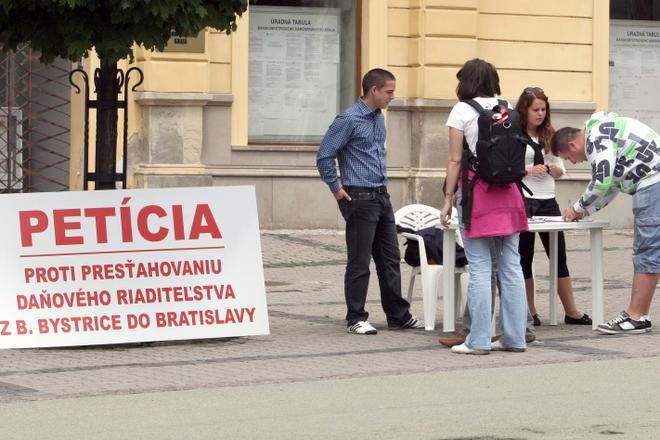THE SLOVAK cabinet adopted in early November a compromise revision to the law on petitions which also sets rules for conducting electronic petitions. Contrary to the original draft revision prepared by the Government Office, it will also be possible to promulgate and support e-petitions on civic portals, not only on the central portal of public administration. Moreover, the duty to sign an electronic ordinary petition by a guaranteed electronic signature was omitted from the draft bill. The bill, whose effectiveness of some parts is proposed for September 15 of the next year and for others as of January 1, 2017, still needs approval by parliament.
“The draft contains significant elements supporting dialogue between civic society and bodies of public power,” the government office wrote in their stance, as cited by the TASR newswire.
Apart from other aspects, it launches electronic petitions complementing the current scheme of classical written petitions.
The bill recognises two kinds of petitions: ordinary petitions, for example for planting trees or installing benches, and those in which the number of signatories does not have legal effects. The second group of petitions includes those in which there is a set minimum quorum or minimum age of supporters in order for these to be effective.
In the case of ordinary petitions, it will be enough when a supporter puts, apart from his or her name and address, an e-mail address on it. He or she will then receive an e-mail. By sending a confirmation e-mail, the addressee will support the petition. Representatives of the public, who objected to the draft revision and submitted a mass comment, informed in their stance.
In total, more than 2,500 people supported the mass comment, believing that the original draft revision was another attempt to limit the possibility to submit petitions on the internet, as only 5 percent of Slovakia’s population currently holds the necessary electronic ID card with an activated chip.
As far as the second group’s petitions, it will be possible to support them only via guaranteed electronic signature, electronic box or the so-called petition system, which still needs to go through attestation.



 Petitions can now go online. (source: Sme)
Petitions can now go online. (source: Sme)